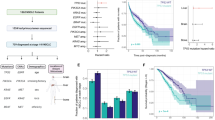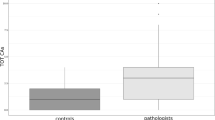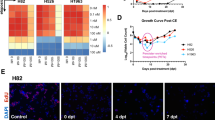Abstract
Aim:
To investigate the relationship of fibroblast growth factor receptor 4 (FGFR4) gene polymorphisms with the response of Chinese patients with non-small cell lung cancer (NSCLC) to chemotherapy.
Methods:
A total of 629 patients with Stage III (A+B) or IV NSCLC, as well as 729 age- and gender-matched healthy controls were recruited. All the patients received platinum-based chemotherapy, and the therapeutic effects were evaluated. Three polymorphisms in the FGFR4 gene (rs351855G/A, rs145302848C/G, and rs147603016G/A) were genotyped, and the association between the 3 polymorphisms and the chemotherapy effect was analyzed using SPSS software, version 16.0.
Results:
The genotype frequencies of rs145302848C/G and rs147603016G/A were not significantly different between NSCLC patients and healthy controls on one hand, and between the responders and non-responders to the chemotherapy on the other hand. The distribution of AA genotype and A-allele of rs351855G/A was significantly lower in NSCLC patients than in healthy controls. Using patients with the GG genotype as a reference, the AA carrier had a significantly reduced risk for the development of NSCLC after normalizing to age, sex and smoking habits. In NSCLC patients, this genotype occurred more frequently in the responders to the chemotherapy than in non-responders. The chance of being a responder was significantly increased with the AA genotype as compared to G genotype. The AA genotype of rs351855G/A had a better prognosis compared with GA and GG genotype carriers: the overall survival of patients with the AA genotype of rs351855G/A was significantly longer than those with the GG+GA genotype (21.1 vs 16.5 months).
Conclusion:
The rs351855G/A polymorphisms of FGFR4 gene can be used to predict the occurrence, chemotherapy response and prognosis of NSCLC.
Similar content being viewed by others
Log in or create a free account to read this content
Gain free access to this article, as well as selected content from this journal and more on nature.com
or
References
Watanabe H, Yamamoto S, Kunitoh H, Sekine I, Yamamoto N, Ohe Y, et al. Tumor response to chemotherapy: the validity and reproducibility of RECIST guidelines in NSCLC patients. Cancer Sci 2003; 94: 1015–20.
Nakajima E, Katou H . Adjuvant chemotherapy for resectable non-small cell lung cancer (NSCLC). Kyobu Geka 2008; 61: 4–8.
Perng RP, Yang CH, Chen YM, Chang GC, Lin MC, Hsieh RK, et al. High efficacy of erlotinib in Taiwanese NSCLC patients in an expanded access program study previously treated with chemotherapy. Lung Cancer 2008; 62: 78–84.
Chang A . Chemotherapy, chemoresistance and the changing treatment landscape for NSCLC. Lung Cancer 2011; 71: 3–10.
Shiraishi K, Kohno T, Tanai C, Goto Y, Kuchiba A, Yamamoto S, et al. Association of DNA repair gene polymorphisms with response to platinum-based doublet chemotherapy in patients with non-small-cell lung cancer. J Clin Oncol 2010; 28: 4945–52.
Cappuzzo F, Ligorio C, Toschi L, Rossi E, Trisolini R, Paioli D, et al. EGFR and HER2 gene copy number and response to first-line chemotherapy in patients with advanced non-small cell lung cancer (NSCLC). J Thorac Oncol 2007; 2: 423–9.
Wu J, Liu J, Zhou Y, Ying J, Zou H, Guo S, et al. Predictive value of XRCC1 gene polymorphisms on platinum-based chemotherapy in advanced non-small cell lung cancer patients: A systematic review and meta-analysis. Clin Cancer Res 2012; 18: 3972–81.
Rosell R, Felip E, Taron M, Majo J, Mendez P, Sanchez-Ronco M, et al. Gene expression as a predictive marker of outcome in stage IIB-IIIA–IIIB non-small cell lung cancer after induction gemcitabine-based chemotherapy followed by resectional surgery. Clin Cancer Res 2004; 10: 4215s–4219s.
Galzie Z, Kinsella AR, Smith JA . Fibroblast growth factors and their receptors. Biochem Cell Biol 1997; 75: 669–85.
Powers CJ, McLeskey SW, Wellstein A . Fibroblast growth factors, their receptors and signaling. Endocr Relat Cancer 2000; 7: 165–97.
Wesche J, Haglund K, Haugsten EM . Fibroblast growth factors and their receptors in cancer. Biochem J 2011; 437: 199–213.
Kornmann M, Beger HG, Korc M . Role of fibroblast growth factors and their receptors in pancreatic cancer and chronic pancreatitis. Pancreas 1998; 17: 169–75.
Spinola M, Leoni VP, Tanuma J, Pettinicchio A, Frattini M, Signoroni S, et al. FGFR4 Gly388Arg polymorphism and prognosis of breast and colorectal cancer. Oncol Rep 2005; 14: 415–9.
Falvella FS, Frullanti E, Galvan A, Spinola M, Noci S, De Cecco L, et al. FGFR4 Gly388Arg polymorphism may affect the clinical stage of patients with lung cancer by modulating the transcriptional profile of normal lung. Int J Cancer 2009; 124: 2880–5.
Ho CK, Anwar S, Nanda J, Habib FK . FGFR4 Gly388Arg polymorphism and prostate cancer risk in Scottish men. Prostate Cancer Prostatic Dis 2010; 13: 94–6.
Xu B, Tong N, Chen SQ, Hua LX, Wang ZJ, Zhang ZD, et al. FGFR4 Gly388Arg polymorphism contributes to prostate cancer development and progression: a meta-analysis of 2618 cases and 2305 controls. BMC Cancer 2011; 11: 84.
Marme F, Hielscher T, Hug S, Bondong S, Zeillinger R, Castillo-Tong DC, et al. Fibroblast growth factor receptor 4 gene (FGFR4) 388Arg allele predicts prolonged survival and platinum sensitivity in advanced ovarian cancer. Int J Cancer 2012; 131: E586–91.
Wang J, Yu W, Cai Y, Ren C, Ittmann MM . Altered fibroblast growth factor receptor 4 stability promotes prostate cancer progression. Neoplasia 2008; 10: 847–56.
Zhang HF, Zhao KJ, Yang PF, Fang YB, Zhang YH, Liu JM, et al. Association between fibroblast growth factor receptor 4 Gly388Arg polymorphism and ischaemic stroke. J Int Med Res 2012; 40: 1708–14.
Zhu Q, Liu T . Fibroblast growth factor receptor 4 polymorphisms and coronary artery disease: a case control study. Mol Biol Rep 2012; 39: 8679–85.
Wong BS, Camilleri M, Carlson PJ, Odunsi-Shiyanbade S, McKinzie S, Busciglio I, et al. Pharmacogenetics of the effects of colesevelam on colonic transit in irritable bowel syndrome with diarrhea. Dig Dis Sci 2012; 57: 1222–6.
Yang Y, Zhou Y, Lu M, An Y, Li R, Chen Y, et al. Association between fibroblast growth factor receptor 4 polymorphisms and risk of hepatocellular carcinoma. Mol Carcinog 2012; 51: 515–21.
Frullanti E, Berking C, Harbeck N, Jezequel P, Haugen A, Mawrin C, et al. Meta and pooled analyses of FGFR4 Gly388Arg polymorphism as a cancer prognostic factor. Eur J Cancer Prev 2011; 20: 340–7.
Heinzle C, Gsur A, Hunjadi M, Erdem Z, Gauglhofer C, Stattner S, et al. Differential effects of polymorphic alleles of FGF receptor 4 on colon cancer growth and metastasis. Cancer Res 2012; 72: 5767–77.
Ma Z, Tsuchiya N, Yuasa T, Inoue T, Kumazawa T, Narita S, et al. Polymorphisms of fibroblast growth factor receptor 4 have association with the development of prostate cancer and benign prostatic hyperplasia and the progression of prostate cancer in a Japanese population. Int J Cancer 2008; 123: 2574–9.
Liwei L, Chunyu L, Jie L, Ruifa H . Association between fibroblast growth factor receptor-4 gene polymorphism and risk of prostate cancer: a meta-analysis. Urol Int 2011; 87: 159–64.
Bange J, Prechtl D, Cheburkin Y, Specht K, Harbeck N, Schmitt M, et al. Cancer progression and tumor cell motility are associated with the FGFR4 Arg(388) allele. Cancer Res 2002; 62: 840–7.
Spinola M, Leoni V, Pignatiello C, Conti B, Ravagnani F, Pastorino U, et al. Functional FGFR4 Gly388Arg polymorphism predicts prognosis in lung adenocarcinoma patients. J Clin Oncol 2005; 23: 7307–11.
Marme F, Werft W, Benner A, Burwinkel B, Sinn P, Sohn C, et al. FGFR4 Arg388 genotype is associated with pathological complete response to neoadjuvant chemotherapy for primary breast cancer. Ann Oncol 2010; 21: 1636–42.
Author information
Authors and Affiliations
Corresponding author
PowerPoint slides
Rights and permissions
About this article
Cite this article
Fang, Hm., Tian, G., Zhou, Lj. et al. FGFR4 genetic polymorphisms determine the chemotherapy response of Chinese patients with non-small cell lung cancer. Acta Pharmacol Sin 34, 549–554 (2013). https://doi.org/10.1038/aps.2012.206
Received:
Accepted:
Published:
Issue date:
DOI: https://doi.org/10.1038/aps.2012.206
Keywords
This article is cited by
-
Influence of NOS3 rs2070744 genotypes on hepatocellular carcinoma patients treated with lenvatinib
Scientific Reports (2020)
-
The FGFR4-388arg Variant Promotes Lung Cancer Progression by N-Cadherin Induction
Scientific Reports (2018)



